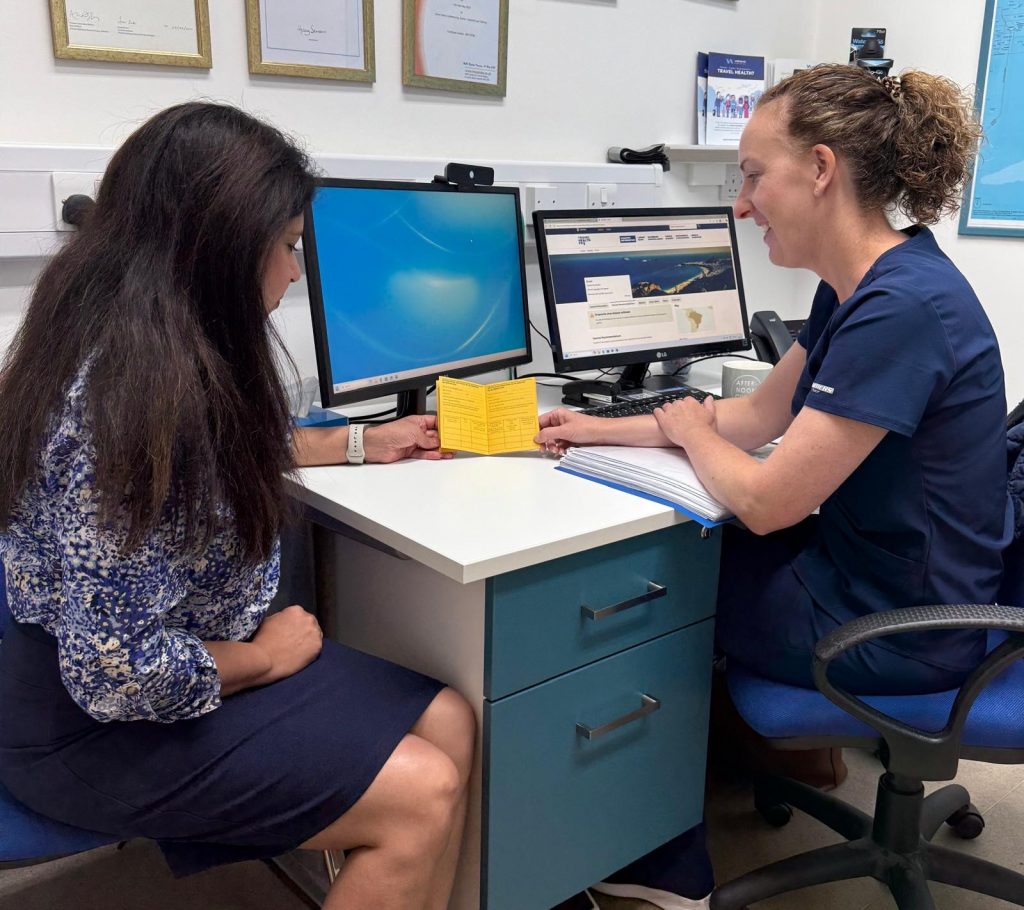We are hearing of an increasing amount of travellers returning from their trips having been exposed to Dengue Fever, particularly travellers around South East Asia. Please continue to be careful to avoid mosquito bites throughout your journey, cover up, use repellents, have fun and stay safe!
Dengue Virus (DenV)
DenV is a mosquito borne virus that has four distinct types known as D1, D2, D3 and D4. It is transmitted by the bite from an infected mosquito.
Dengue fever is an emerging disease which has spread globally during the past 30 years. Around 2.5 billion people in >100 tropical & subtropical countries are exposed. The disease occurs mainly in Asia and the Pacific followed by the Americas, the Middle East and Africa. WHO estimates that there are 50 million cases each year.
Seasonality
DF occurs all year around in the tropics and in the wet seasons in sub tropical regions.
More and more cases are being seen in travellers and there is likely to be under reporting because most initial cases are asymptomatic. A retrospective study in Leicester, England showed that DF accounted for 6.4% of hospitalized febrile returned travellers. Twenty five per cent of those admitted as malaria turned out to have dengue.
The Disease
DF has traditionally been seen as a daytime urban disease . However DF has now appeared in the suburbs of cities e.g. Bangkok,Hanoi and has been transmitted during the night. Its spread outside cities is partly due to an increase in mosquito breeding sites in suburbs because of open drains, garden ponds, animal troughs, plastic bags and discarded drink cans.
Transmission of DF
Mosquito to human to mosquito
When someone acquires dengue infection the virus is active in the blood for about 5 days.If, during this time, an uninfected female mosquito bites and takes a blood meal then the virus can be transferred to another person .There is NO human to human transmission.
Symptoms
The vast majority of cases are asymptomatic or are associated with a very mild flu-like illness. DF has a short incubation period,normally about 2 – 5 days but may be up to 15 days.
Symptoms may include:
1. Acute high Fever ( may subside to normal in a day or so and then rise again)
2. Joint and muscle pains.
3. Severe headache, pain behind the eyes
4. A rash is present in up to 50% of cases.
5. Photophobia ( sensitivity to light)
6. Swollen lymph nodes.
Always seek medical attention for diagnosis and advice.
Skincare is more than just a routine—it’s a commitment to self-care and confidence. In this blog, we explore expert-approved tips and insights to help you achieve radiant, healthy skin. From understanding your skin type to choosing the right products, our comprehensive guide will empower you with the knowledge to take control of your skincare journey.Whether you’re looking for solutions to acne, dullness, or aging, our curated advice is designed to cater to your unique needs. Let us guide you toward a skincare routine that enhances your natural beauty and leaves you glowing with confidence
Treatment
There is no specific vaccine or treatement. Treatment is aimed at relieving symptoms with pain relief and rest. Avoid aspirin based products. Immunity against the specific infecting strain lasts for life
An estimated 1-2 % of Dengue cases including subsequent infection from a different strain can progress to severe disease that can be fatal.
Prevention
Personal protection against mosquito bites is recommended in all dengue endemic areas.



